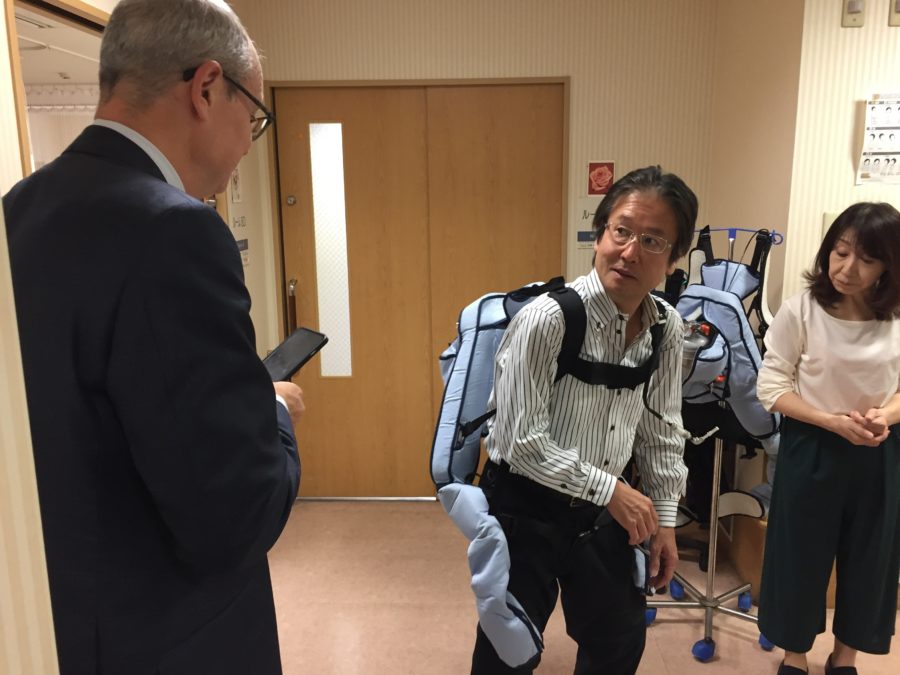11th October 2018 Tokyo, Japan
Blade runner at the old folks’ home

Japan is famous for its robots. You can eat at a Tokyo café where they entertain you, or stay at a hotel where they do the check-in. But one area where they really have a big role to play is in helping to care for Japan’s increasing army of elderly people.
There are 70,000 people over a hundred years old in Japan (nearly 90% of them are women). You already have people in their 70s and 80s worrying about caring for their own parents. And with Japan’s population set to shrink by 30m over the next 40 years there are going to be fewer young people around to play these vital support roles. The social security budget for nursing care is expected to increase by 50% from about £70bn to £100bn by 2025.
So it was fascinating to accompany Dr Patrick Vallance, the UK Government’s new Chief Scientific Adviser, on a visit to the Silver Wing Social Care Home in central Tokyo. It is a regular care facility, but has been chosen as a test bed for many assistive robot technologies. They fall into three types:
- Devices to help the carers – particularly a sort of mechanical backpack, which takes the strain off your back as you bend and lift patients. This is particularly useful as the carers themselves are increasingly getting older.
- Mobility devices to help the patients – we watched an elderly lady who would normally totter slowly with the aid of a walking stick, walk confidently and comfortably at normal speed, after being strapped into a device which helped her legs move. And we saw a bed which converted into a wheelchair, as well as a wheelchair which walked up a set of stairs.
- Animated devices which empathise with patients – we watched elderly people stroking and chatting to highly tactile and appealing robots, just as if they were real live pets. They seemed to be getting great comfort from them, tackling one of the great challenges of old age – loneliness.
We have a large Science and Innovation team at the Embassy in Tokyo. Hardly surprising given the strengths of Japanese science. Japan spends around four times as much on R&D as we do (a larger share of a much larger GDP), and are second only to the US in the number of Nobel Prizes for science over the last 20 years. Only last week Professor Tasuku Honjo won the Nobel Prize for medicine for his work on cancer therapy. UK-Japan science cooperation is of the highest international quality, so we are keen to promote new partnerships between British and Japanese researchers and institutions.
And I think my S&I team are lucky as they get to visit some really fascinating places. Occasionally they let me come too. Over the last few months I have visited the national Meteorological Agency, which monitors natural disasters like typhoons; the Earthquake Institute at Tokyo University (where I learned that the Seismological Society of Japan had been founded by a Brit in the 19th Century); and the national Space Agency at Tsukuba Science City. Perhaps if more young people had the chance to see how science can lead to really fascinating careers, often with a significant international dimension, even more of them would be choosing STEM subjects at school.